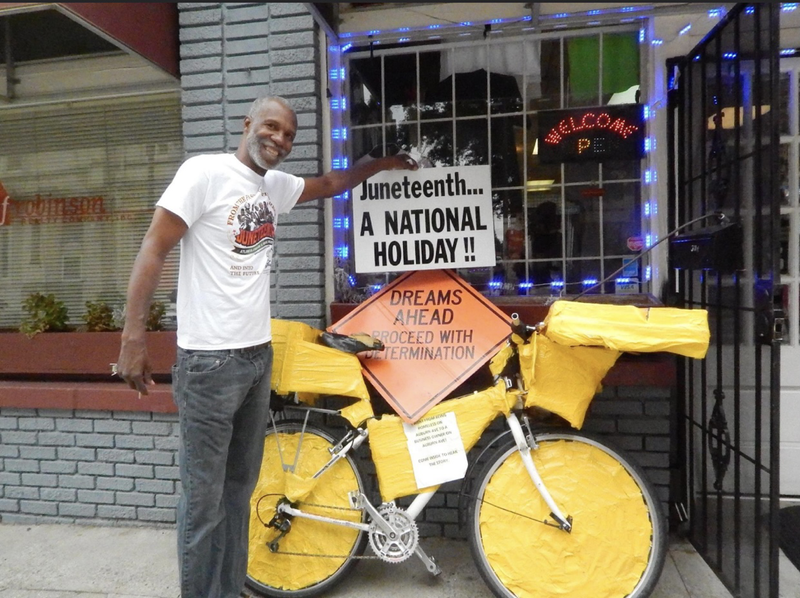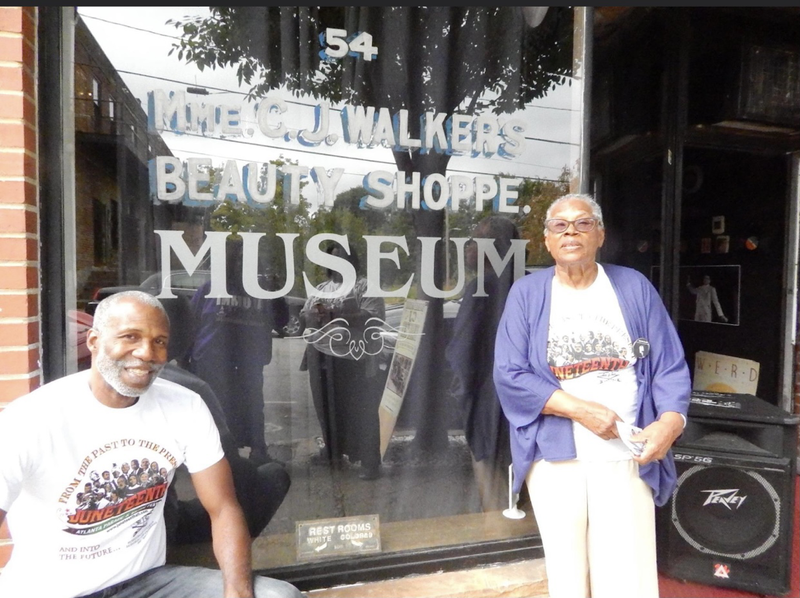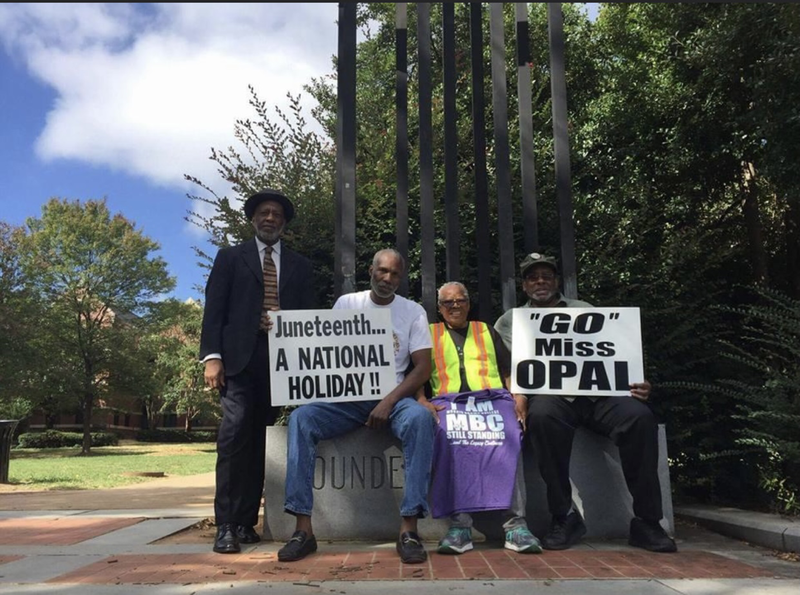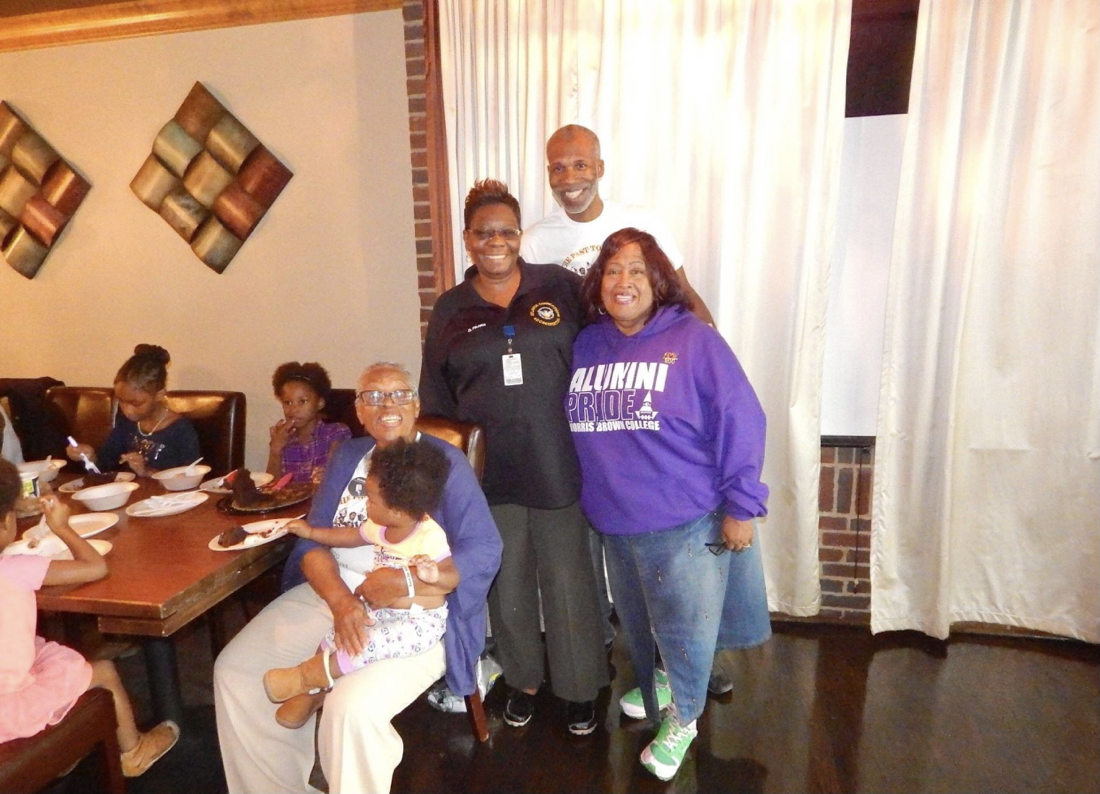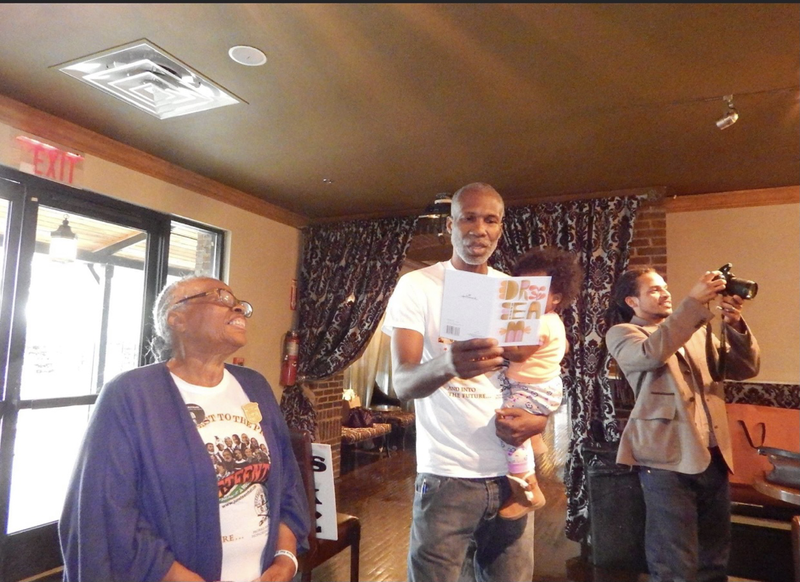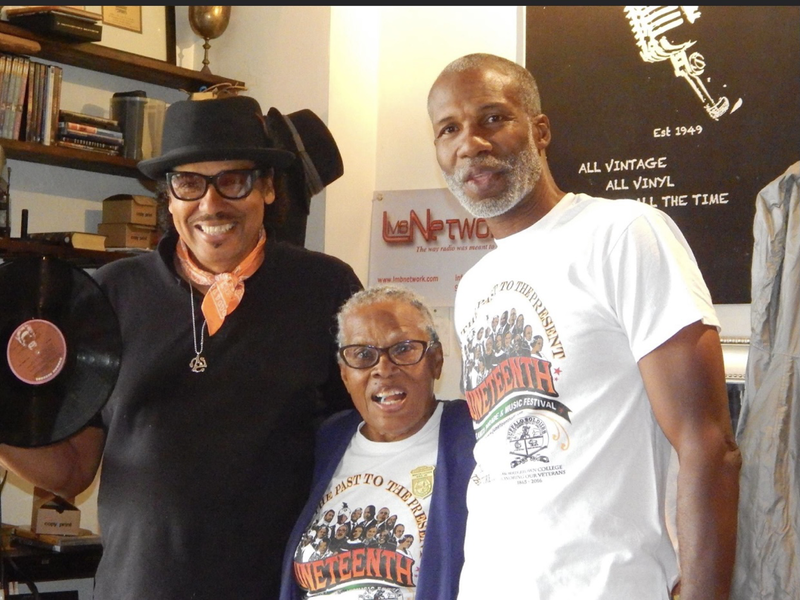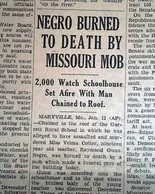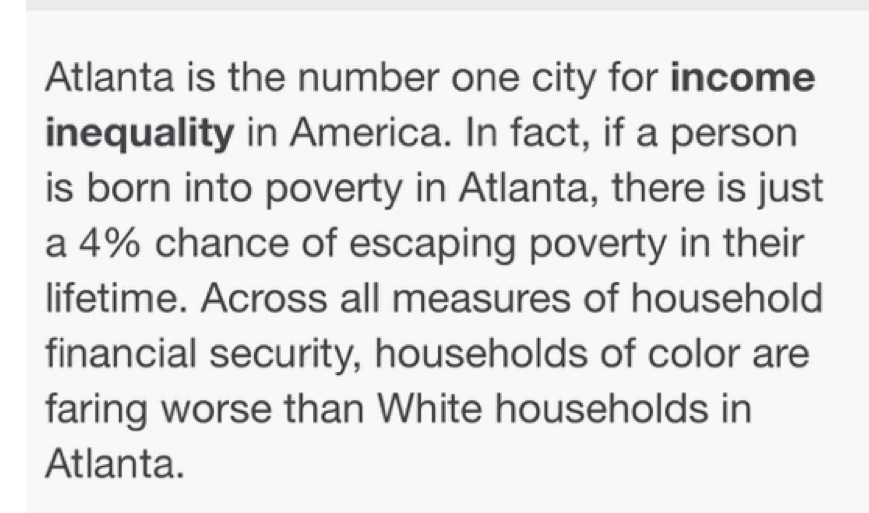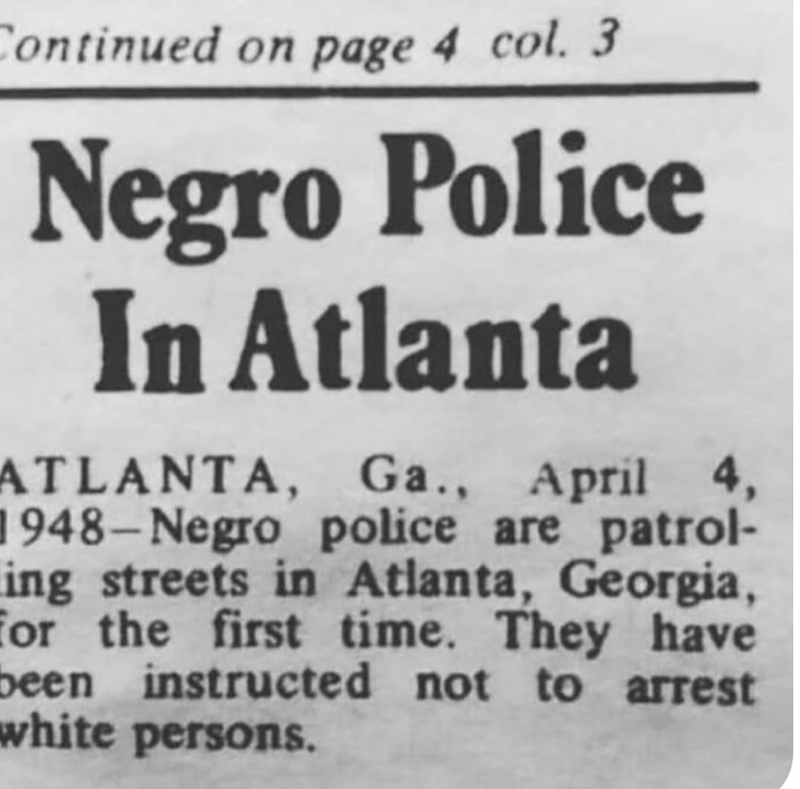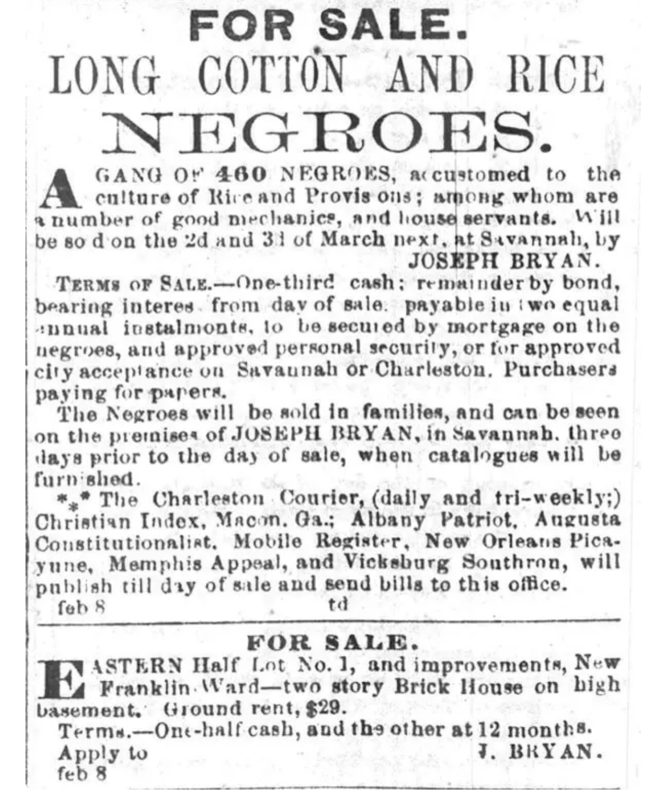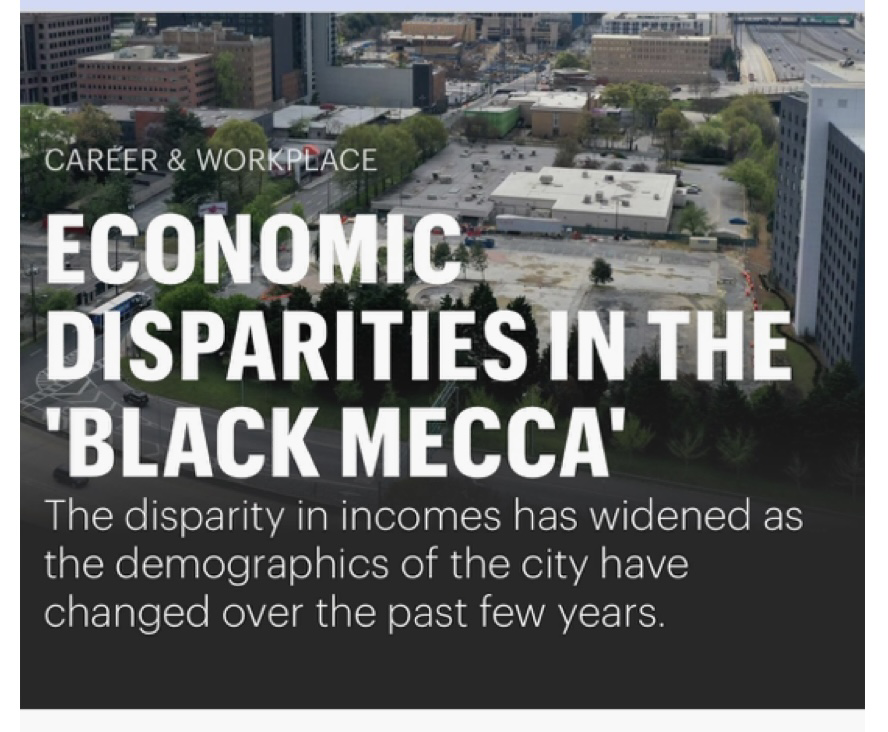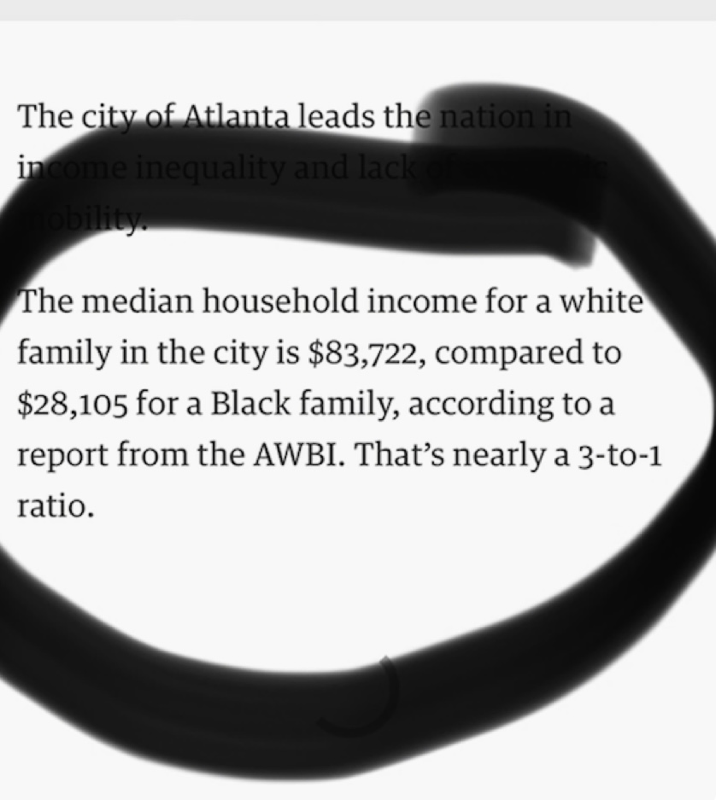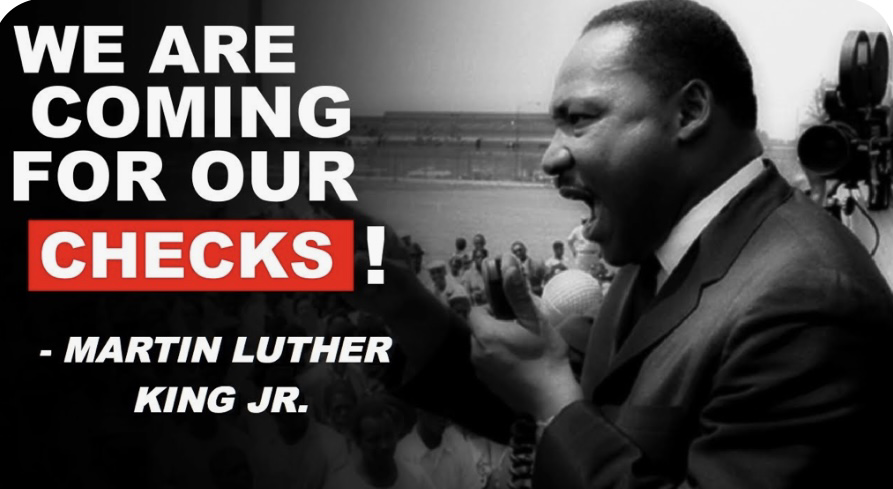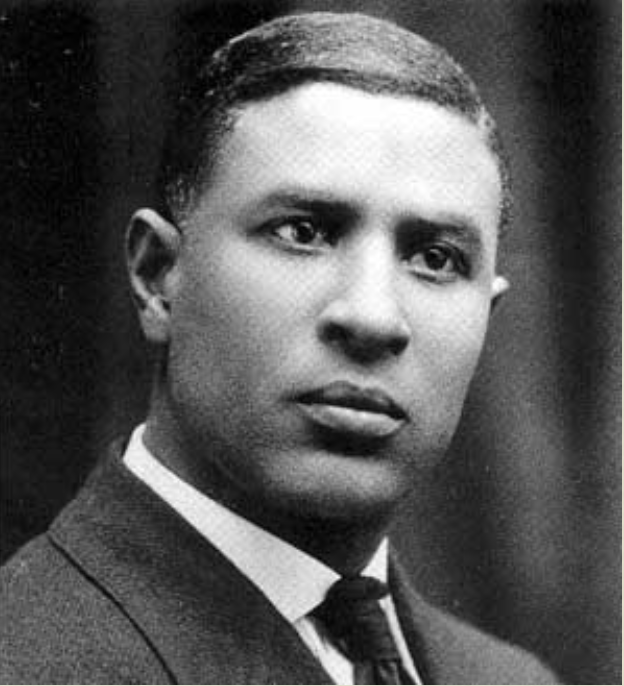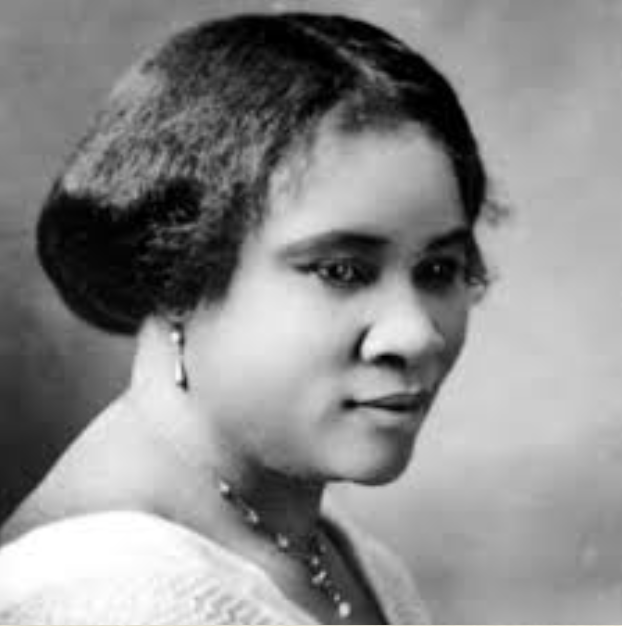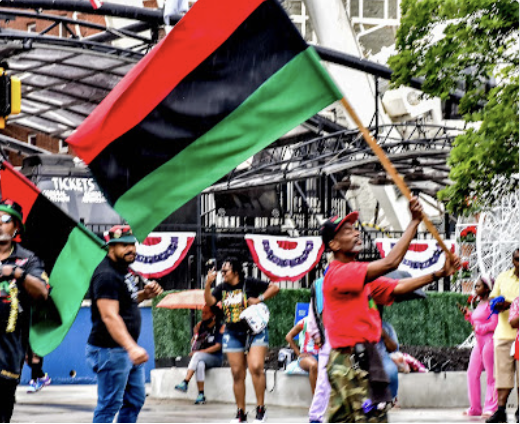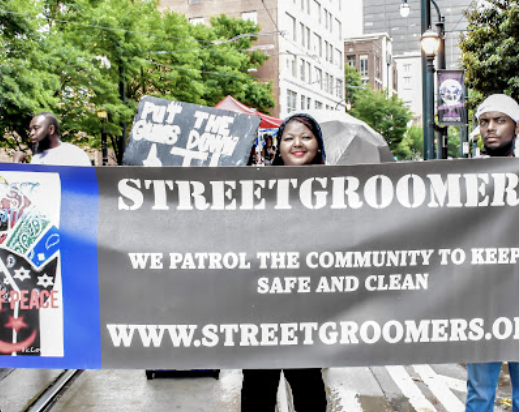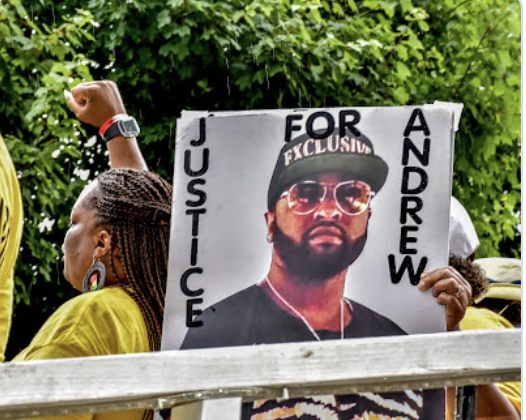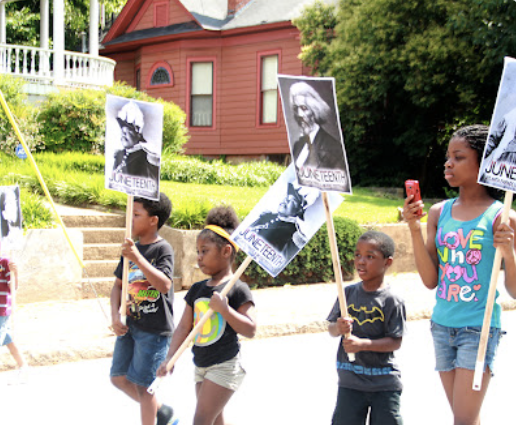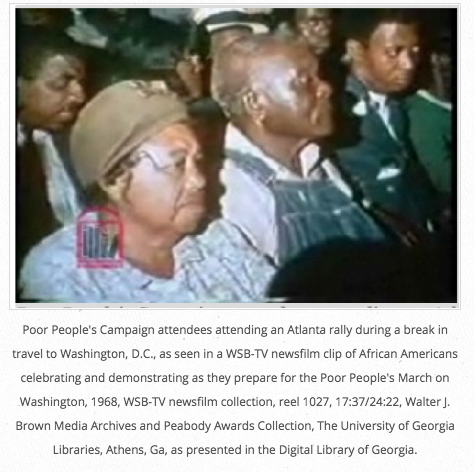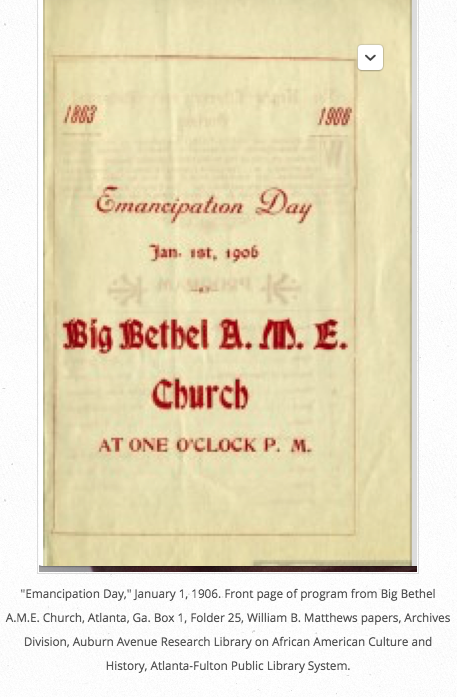Our Vision:
To build a nationally televised black history parade that attracts national participation and attendance.
Our Mission:
To educate the public on the Juneteenth holiday and highlight historical African American achievements through music festivals and parades.
To build a nationally televised black history parade that attracts national participation and attendance.
Our Mission:
To educate the public on the Juneteenth holiday and highlight historical African American achievements through music festivals and parades.
CONGRATULATIONS!
JUNETEENTH IS NOW A NATIONAL HOLIDAY!
JUNETEENTH IS NOW A NATIONAL HOLIDAY!
ABOUT JUNETEENTH
Milestone: Georgia can be proud to know that Juneteenth Atlanta Parade & Music Festival DBA Juneteenth Atlanta is a 12 year member of the National Juneteenth Observation Foundation(NJOF). NJOF was founded by the late and great Rev. Ronald V. Meyers Senior M.D. The NJOF was the driving force behind Juneteenth becoming a national holiday. Now under the leadership of President Steve Williams and our Queen Elder member, 94 years young, Opal Lee, who stood at the table durning the signing of Senate Bill S. 475 by President Biden, on June 17, 2021 making Juneteenth the nations 12th federal holiday. Upon the bill's completion, Opal Lee received the legislative pen from President Biden on behalf of the NJOF. Juneteenth Atlanta hosted Opal Lee as she made her walk across the country to help make Juneteenth a national holiday and helped her celebrate her 90th birthday celebration here in Atlanta in 2016. NJOF members collectively worked together over the years towards making Juneteenth a national holiday and now we have it.
Rev. Ronald V. Meyers Senior M.D. Appointed Bob Johnson, founder of Juneteenth Atlanta Parade & Music Festival, the NJOF director over the state of Georgia in 2012. Juneteenth Atlanta is now noted as being one of the largest Juneteenth festivals in the country. Juneteenth Atlanta is held in Atlanta, Ga and features a unique weekend music festival and a Juneteenth Holiday Aboriginal/Black History Parade. Juneteenth Atlanta now offers six stages, family reunion packages, family activities, sports activities for youth, chess, martial arts, yoga, panel discussions, work shops, competitions, a pow wow, African drum & dance, historical reenactments, media zone, V.I.P area, Fountain of Rings zero-depth pool area, mobile fishing pound, battle-slam professional fighting ring, acres of adult/children bouncy houses, carnival rides and much more. Juneteenth Atlanta festival offers three days of commemoration/celebration that fills the air with Frankincense, myrrh and sage. Juneteenth Atlanta is the biggest collaboration of culture, unity, self-love, and family that focuses on the reunification of the African diaspora with the African continent.
Rev. Ronald V. Meyers Senior M.D. Appointed Bob Johnson, founder of Juneteenth Atlanta Parade & Music Festival, the NJOF director over the state of Georgia in 2012. Juneteenth Atlanta is now noted as being one of the largest Juneteenth festivals in the country. Juneteenth Atlanta is held in Atlanta, Ga and features a unique weekend music festival and a Juneteenth Holiday Aboriginal/Black History Parade. Juneteenth Atlanta now offers six stages, family reunion packages, family activities, sports activities for youth, chess, martial arts, yoga, panel discussions, work shops, competitions, a pow wow, African drum & dance, historical reenactments, media zone, V.I.P area, Fountain of Rings zero-depth pool area, mobile fishing pound, battle-slam professional fighting ring, acres of adult/children bouncy houses, carnival rides and much more. Juneteenth Atlanta festival offers three days of commemoration/celebration that fills the air with Frankincense, myrrh and sage. Juneteenth Atlanta is the biggest collaboration of culture, unity, self-love, and family that focuses on the reunification of the African diaspora with the African continent.
WHAT EXACLY IS JUNETEENTH? June 19th is the newest National Holiday and the official annual day of observance to celebrate the day of emancipation and independence of the enslaved aboriginal people of African descent. Historically, it is the date Union soldiers, including the United States Colored Troop (USCT) enforced the Emancipation Proclamation freeing all remaining enslaved people in Galveston, Texas, in 1865. Texas was one of the last states in rebellion, following the end of the Civil War, to allow enslavement. Although the rumors of freedom were widespread prior to this, actual emancipation was not announced in the last few states practicing enslavement until General Gordon Granger and the United States Colored Troops came to Galveston, Texas and issued General Order #3, on the “19th of June,” almost two and a half years after President Abraham Lincoln signed the Emancipation Proclamation!
General Order #3 Read:
"The people of Texas are informed that, in accordance with a proclamation from the Executive of the United States, all slaves are free. This involves an absolute equality of personal rights and rights of property between former masters and slaves, and the connection heretofore existing between them becomes that between employer and hired labor. The freedmen are advised to remain quietly at their present homes and work for wages. They are informed that they will not be allowed to collect at military posts and that they will not be supported in idleness either there or elsewhere."
General Order #3 Read:
"The people of Texas are informed that, in accordance with a proclamation from the Executive of the United States, all slaves are free. This involves an absolute equality of personal rights and rights of property between former masters and slaves, and the connection heretofore existing between them becomes that between employer and hired labor. The freedmen are advised to remain quietly at their present homes and work for wages. They are informed that they will not be allowed to collect at military posts and that they will not be supported in idleness either there or elsewhere."
Juneteenth Atlanta Is The Official Juneteenth Celebration for The City Of Atlanta
| mayors_office.png | |
| File Size: | 247 kb |
| File Type: | png |
Juneteenth Atlanta receives a Proclamation from Governor Deal
| governor_proclamation.png | |
| File Size: | 525 kb |
| File Type: | png |
Bob Johnson of Juneteenth Atlanta and Opel Lee of Fort Worth, Texas!
Working through NJOF over the years to make Juneteenth A National Holiday!
Working through NJOF over the years to make Juneteenth A National Holiday!
Georgia Officially Recognizes Juneteenth In 2011:
Over the past decade, Juneteenth activities have increased in sponsorship, and a unified interest in the commemoration of Juneteenth has continued to grow as African descendants have been determined to ensure that the memories of the last enslaved Africans freed in this country are not forgotten. In 2011, Georgia became the thirty-seventh state to recognize Juneteenth at its state capitol with the passage of S.R. 164, co-sponsored by state senators Lester Jackson from Savannah (District 2), Donzella James from College Park (District 35), and Valencia Seay from Riverdale (District 34); the resolution was read and adopted on February 16, 2011. This can be seen in the Georgia Government Publications collection as its title was formally introduced in the legislative chamber (on page 3 of the February 6, 2011 issue of Senate First Readers) and as it was read and adopted on page 187 of the 2011 issue of the Journal of the Senate of the State of Georgia, Regular Session 2011.
Over the past decade, Juneteenth activities have increased in sponsorship, and a unified interest in the commemoration of Juneteenth has continued to grow as African descendants have been determined to ensure that the memories of the last enslaved Africans freed in this country are not forgotten. In 2011, Georgia became the thirty-seventh state to recognize Juneteenth at its state capitol with the passage of S.R. 164, co-sponsored by state senators Lester Jackson from Savannah (District 2), Donzella James from College Park (District 35), and Valencia Seay from Riverdale (District 34); the resolution was read and adopted on February 16, 2011. This can be seen in the Georgia Government Publications collection as its title was formally introduced in the legislative chamber (on page 3 of the February 6, 2011 issue of Senate First Readers) and as it was read and adopted on page 187 of the 2011 issue of the Journal of the Senate of the State of Georgia, Regular Session 2011.
WHY CELEBRATE JUNETEENTH?
Every person should commemorate Juneteenth to give thanks and appreciation to those who suffered and survived some of the worst conditions ever inflicted on a people in history. Surely every American should remember, honor and appreciate the people who gave so much of their intellect, creativity, and labor to build America into the wealthy nation it is today, in spite of their horrific experiences. From the traffic light systems to the refrigerator, the light bulb with an illuminated filament, the telephone, eye lasers, and blood banks, we can give thanks for these and the many other contributions made by these ancestors. We can thank the minds of African descendants for these and numerous more contributions. Here we are after 400 years of enslavement, still striving for reparations, human rights, and equality. These are the goals we seek in the spirit of the Juneteenth celebration. Freedom, liberty, and justice for all! -Bob Johnson
Every person should commemorate Juneteenth to give thanks and appreciation to those who suffered and survived some of the worst conditions ever inflicted on a people in history. Surely every American should remember, honor and appreciate the people who gave so much of their intellect, creativity, and labor to build America into the wealthy nation it is today, in spite of their horrific experiences. From the traffic light systems to the refrigerator, the light bulb with an illuminated filament, the telephone, eye lasers, and blood banks, we can give thanks for these and the many other contributions made by these ancestors. We can thank the minds of African descendants for these and numerous more contributions. Here we are after 400 years of enslavement, still striving for reparations, human rights, and equality. These are the goals we seek in the spirit of the Juneteenth celebration. Freedom, liberty, and justice for all! -Bob Johnson
So Juneteenth is the newest national holiday, now what?
Reparations Over Everything
Why Reparations!
Just as Juneteenth is now a federal holiday in the United States of America, reparations will be delivered to the descendants of those who were enslaved in these United States of America!
Reparations Over Everything
Why Reparations!
Just as Juneteenth is now a federal holiday in the United States of America, reparations will be delivered to the descendants of those who were enslaved in these United States of America!
Since 1865 African descendant survivors are responsible for 153 years of African American achievements with our greatest achievement being our newest generations filled with promise and potential to fulfill their destiny. The African American survivors have excelled in every area from art, music, dance, theatre, literature, sport, education, science, business, health, politics, and much more. We can thank the few historic ancestors we have listed here and the many more for their countless inventions and contributions to the world. It continues... A tribute of appreciation to so many ancestors who led our way
The Struggle For Human Rights Continues | From Civil Rights to Human Rights | To Reparations Now!
How did the title Juneteenth originate? (The following is one of a few different exclamation of how the title Juneteenth originated:) The crowd of ex-enslaved Africans immediately began celebrating and to make it official selected a young girl to announce the freedom celebration. In her attempt at stating, We Free, June 19th, We Free! it sounded to the crowd that she was saying "Juneteenth" instead of "June 19th" and with the crowd repeating We Free, Juneteenth, We Free! Juneteenth became the official title of the celebration.
Juneteenth was first celebrated in Texas with political rallies that featured voting rights and voter education. Wealthier African Americans purchased land to establish dependable venues for annual Juneteenth celebrations that included live entertainment in the form of music, pageants, parades, and outdoor games. There were also meaningful rituals associated with the event. During earlier celebrations, for example, former slaves discarded their old clothing and replaced it with newer styles, as remembrance that laws governing slaves often prohibited African Americans from wearing finer clothing that challenged the status of their oppressors.
As African American Texans migrated to other states, Juneteenth celebrations spread to new locations. The celebration of the emancipation of African American slaves has also been conducted on other days, such as the anniversaries of President Lincoln’s birthday (February 12), or the issuance of the Emancipation Proclamation (January 1), as seen in this 1906 program from Big Bethel A.M.E. Church, the oldest congregation in Atlanta’s historic Sweet Auburn neighborhood. "See archive below."
"Emancipation Day," January 1, 1906. Front page of program from Big Bethel A.M.E. Church, Atlanta, Ga. Box 1, Folder 25, William B. Matthews papers, Archives Division, Auburn Avenue Research Library on African American Culture and History, Atlanta-Fulton Public Library System.
Emancipation celebrations are also held in former Confederate states on the anniversaries of the date of compliance with the Emancipation Proclamation. In Georgia, residents of Upson County have celebrated Emancipation Day every year since 1866 on May 29th. Georgia House resolution (HR) 859 was passed on January 24, 1996; it designated May 29th “Emancipation Day” in Upson County, as seen on page 227 of the document. An African American woman named Flexan Pierce recalls celebrating Emancipation Day each year on August 12 with a picnic during an oral history interview conducted on October 30, 1972 (this can be heard 3 minutes and 43 seconds into the recording).
From the early- to mid-twentieth century, the celebrations popularity waned for numerous reasons. Standardized textbooks, for one, listed the enactment of the Emancipation Proclamation as the date that slavery ended, but failed to recognize resistance to that law in Southern states; African Americans had moved away from rural farms and into cities where employers were less likely to permit a June 19th holiday in the middle of the week, particularly when a national independence holiday was celebrated on July 4th; and during the earlier days of the Civil Rights movement, African Americans were encouraged to strive for integration rather than celebrate culturally separate aspects of their national heritage. A renewed interest in Juneteenth gained strength towards the latter part of the 1960s, when Rev. Ralph Abernathy aligned the celebration with the national civil rights and anti-poverty goals of the Poor People’s Campaign of 1968. Solidarity Day, a key event in the campaign, took place on Juneteenth.
Organized by Abernathy, Coretta Scott King, leaders of the Southern Christian Leadership Conference (SCLC), and members of other civil rights and relief organizations to continue Dr. Martin Luther King, Jr.‘s legacy after his assassination on April 4, 1968, the Poor People’s Campaign’s goals were to secure economic justice for poor Americans, and to pass federal legislation that would improve the economic and social conditions of the impoverished. SCLC leaders organized several regional caravans throughout the country to bring participants to Washington, D.C., one of which can be seen BELOW passing through Atlanta.
On June 19, 1968, approximately fifty thousand people gathered on Solidarity Day at the Washington Mall to march in support of increasing federal commitment to President Lyndon Johnson’s “War on Poverty” and to listen to Coretta Scott King deliver an address that was originally to have been given by her husband. By linking Solidarity Day to Juneteenth, Abernathy also joined the remembrance of slavery and emancipation with the struggles of their time: civil rights, economic injustice, and the loss of Martin Luther King, Jr. Inspired by the symbolism of these events, many civil rights workers who traveled to Washington, D.C. to participate in the Poor People’s Campaign returned home and initiated regional Juneteenth celebrations in their own communities.
Poor People's Campaign attendees attending an Atlanta rally during a break in travel to Washington, D.C., as seen in a WSB-TV newsfilm clip of African Americans celebrating and demonstrating as they prepare for the Poor People's March on Washington, 1968, WSB-TV newsfilm collection, reel 1027, 17:37/24:22, Walter J. Brown Media Archives and Peabody Awards Collection, The University of Georgia Libraries, Athens, Ga, as presented in the Digital Library of Georgia.
Juneteenth was first celebrated in Texas with political rallies that featured voting rights and voter education. Wealthier African Americans purchased land to establish dependable venues for annual Juneteenth celebrations that included live entertainment in the form of music, pageants, parades, and outdoor games. There were also meaningful rituals associated with the event. During earlier celebrations, for example, former slaves discarded their old clothing and replaced it with newer styles, as remembrance that laws governing slaves often prohibited African Americans from wearing finer clothing that challenged the status of their oppressors.
As African American Texans migrated to other states, Juneteenth celebrations spread to new locations. The celebration of the emancipation of African American slaves has also been conducted on other days, such as the anniversaries of President Lincoln’s birthday (February 12), or the issuance of the Emancipation Proclamation (January 1), as seen in this 1906 program from Big Bethel A.M.E. Church, the oldest congregation in Atlanta’s historic Sweet Auburn neighborhood. "See archive below."
"Emancipation Day," January 1, 1906. Front page of program from Big Bethel A.M.E. Church, Atlanta, Ga. Box 1, Folder 25, William B. Matthews papers, Archives Division, Auburn Avenue Research Library on African American Culture and History, Atlanta-Fulton Public Library System.
Emancipation celebrations are also held in former Confederate states on the anniversaries of the date of compliance with the Emancipation Proclamation. In Georgia, residents of Upson County have celebrated Emancipation Day every year since 1866 on May 29th. Georgia House resolution (HR) 859 was passed on January 24, 1996; it designated May 29th “Emancipation Day” in Upson County, as seen on page 227 of the document. An African American woman named Flexan Pierce recalls celebrating Emancipation Day each year on August 12 with a picnic during an oral history interview conducted on October 30, 1972 (this can be heard 3 minutes and 43 seconds into the recording).
From the early- to mid-twentieth century, the celebrations popularity waned for numerous reasons. Standardized textbooks, for one, listed the enactment of the Emancipation Proclamation as the date that slavery ended, but failed to recognize resistance to that law in Southern states; African Americans had moved away from rural farms and into cities where employers were less likely to permit a June 19th holiday in the middle of the week, particularly when a national independence holiday was celebrated on July 4th; and during the earlier days of the Civil Rights movement, African Americans were encouraged to strive for integration rather than celebrate culturally separate aspects of their national heritage. A renewed interest in Juneteenth gained strength towards the latter part of the 1960s, when Rev. Ralph Abernathy aligned the celebration with the national civil rights and anti-poverty goals of the Poor People’s Campaign of 1968. Solidarity Day, a key event in the campaign, took place on Juneteenth.
Organized by Abernathy, Coretta Scott King, leaders of the Southern Christian Leadership Conference (SCLC), and members of other civil rights and relief organizations to continue Dr. Martin Luther King, Jr.‘s legacy after his assassination on April 4, 1968, the Poor People’s Campaign’s goals were to secure economic justice for poor Americans, and to pass federal legislation that would improve the economic and social conditions of the impoverished. SCLC leaders organized several regional caravans throughout the country to bring participants to Washington, D.C., one of which can be seen BELOW passing through Atlanta.
On June 19, 1968, approximately fifty thousand people gathered on Solidarity Day at the Washington Mall to march in support of increasing federal commitment to President Lyndon Johnson’s “War on Poverty” and to listen to Coretta Scott King deliver an address that was originally to have been given by her husband. By linking Solidarity Day to Juneteenth, Abernathy also joined the remembrance of slavery and emancipation with the struggles of their time: civil rights, economic injustice, and the loss of Martin Luther King, Jr. Inspired by the symbolism of these events, many civil rights workers who traveled to Washington, D.C. to participate in the Poor People’s Campaign returned home and initiated regional Juneteenth celebrations in their own communities.
Poor People's Campaign attendees attending an Atlanta rally during a break in travel to Washington, D.C., as seen in a WSB-TV newsfilm clip of African Americans celebrating and demonstrating as they prepare for the Poor People's March on Washington, 1968, WSB-TV newsfilm collection, reel 1027, 17:37/24:22, Walter J. Brown Media Archives and Peabody Awards Collection, The University of Georgia Libraries, Athens, Ga, as presented in the Digital Library of Georgia.
|
Juneteenth Reaches Georgia Government
JUNETEENTH SENATE RESOLUTION IS RECORDED IN FIRST READERS WEDNESDAY, ON FEBRUARY 16, 2011 FIFTEENTH LEGISLATIVE DAY AND READS A FOLLOWS:
SR 164. By Senators Jackson of the 2nd, James of the 35th and Seay of the 34th: A RESOLUTION recognizing "Juneteenth Celebration Day" in Georgia; and for other purposes. Read and Adopted. |
Abraham Lincoln’s Emancipation Proclamation
[San Francisco, California, and Washington, D.C.], January 1, 1863 [1864]. Document signed, 1 page.
President Lincoln’s
Emancipation Proclamation,
I, Abraham Lincoln, President of the United States, by virtue of the power in me vested as Commander in Chief of the Army and Navy of the United States, in time of actual armed rebellion against the authority and government of the United States, and as a fit and necessary war measure for suppressing said rebellion, do, on this first day of January, in the year of our Lord one thousand eight hundred and sixty three, and in accordance with my purpose so to do publicly proclaimed for the full period of one hundred days from the day of the first abovementioned order, and designate as the States and parts of States wherein the people thereof respectively are this day in rebellion against the United States, the following to wit: Arkansas, Texas, Louisiana — except the parishes of St. Bernard, Placquemines, Jefferson, St. John, St. Charles, St. James, Ascension, Assumption, Terre Bonne, Lafourche, St. Mary, St. Martin, and Orleans, including the city of New Orleans — Mississippi, Alabama, Florida, Georgia, South Carolina, North Carolina, and Virginia — except the forty eight counties designated as West Virginia, and also the counties of Berkeley, Accomac, Northampton, Elizabeth City, York, Princess Ann, and Norfolk, including the cities of Norfolk and Portsmouth, and which excepted parts are, for the present, left precisely as if this proclamation were not issued.
And by virtue of the power and for the purpose aforesaid, I do order and declare that all persons held as slaves within said designated States and parts of States are and henceforward shall be free; and that the executive government of the United States, including the military and naval authorities thereof, will recognize and maintain the freedom of said persons.
And I hereby enjoin upon the people so declared to be free to abstain from all violence, unless in necessary self defense; and I recommend to them that in all cases when allowed, they labor faithfully for reasonable wages.
And I further declare and make known that such persons, of suitable condition, will be received into the armed service of the United States, to garrison forts, positions, stations, and other places, and to man vessels of all sorts in said service.
And upon this, sincerely believed to be an act of justice, warranted by the Constitution, upon military necessity, I invoke the considerate judgment of mankind and the gracious favor of Almighty God.
Abraham Lincoln
Executed and published by F.S. Butler, 1864. Printed by L. Nagel.
Entered according to Act of Congress, the year 1864, by F.S. Butler, in the Clerks Office of the District Court of the Northern District of California.
[San Francisco, California, and Washington, D.C.], January 1, 1863 [1864]. Document signed, 1 page.
President Lincoln’s
Emancipation Proclamation,
I, Abraham Lincoln, President of the United States, by virtue of the power in me vested as Commander in Chief of the Army and Navy of the United States, in time of actual armed rebellion against the authority and government of the United States, and as a fit and necessary war measure for suppressing said rebellion, do, on this first day of January, in the year of our Lord one thousand eight hundred and sixty three, and in accordance with my purpose so to do publicly proclaimed for the full period of one hundred days from the day of the first abovementioned order, and designate as the States and parts of States wherein the people thereof respectively are this day in rebellion against the United States, the following to wit: Arkansas, Texas, Louisiana — except the parishes of St. Bernard, Placquemines, Jefferson, St. John, St. Charles, St. James, Ascension, Assumption, Terre Bonne, Lafourche, St. Mary, St. Martin, and Orleans, including the city of New Orleans — Mississippi, Alabama, Florida, Georgia, South Carolina, North Carolina, and Virginia — except the forty eight counties designated as West Virginia, and also the counties of Berkeley, Accomac, Northampton, Elizabeth City, York, Princess Ann, and Norfolk, including the cities of Norfolk and Portsmouth, and which excepted parts are, for the present, left precisely as if this proclamation were not issued.
And by virtue of the power and for the purpose aforesaid, I do order and declare that all persons held as slaves within said designated States and parts of States are and henceforward shall be free; and that the executive government of the United States, including the military and naval authorities thereof, will recognize and maintain the freedom of said persons.
And I hereby enjoin upon the people so declared to be free to abstain from all violence, unless in necessary self defense; and I recommend to them that in all cases when allowed, they labor faithfully for reasonable wages.
And I further declare and make known that such persons, of suitable condition, will be received into the armed service of the United States, to garrison forts, positions, stations, and other places, and to man vessels of all sorts in said service.
And upon this, sincerely believed to be an act of justice, warranted by the Constitution, upon military necessity, I invoke the considerate judgment of mankind and the gracious favor of Almighty God.
Abraham Lincoln
Executed and published by F.S. Butler, 1864. Printed by L. Nagel.
Entered according to Act of Congress, the year 1864, by F.S. Butler, in the Clerks Office of the District Court of the Northern District of California.
